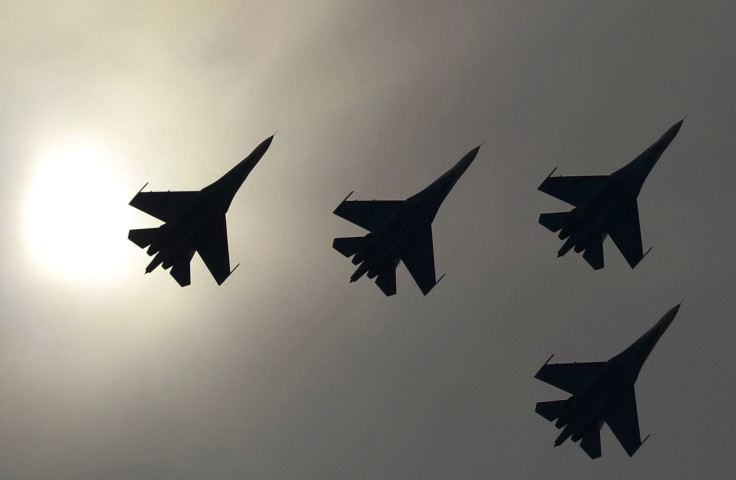Russia-Sweden Conflict? Military Attack Possible Amid Arctic Circle Su-27 Drills, Stockholm Warns

Swedish defense officials warned Sunday that Russia's growing military ambitions in the Arctic Circle were threatening the Nordic nation's peace and could even result in an attack within a few years, Defense News reported. Russia has been building up a military presence in the region for several years, and NATO confirmed last week that Moscow carried out exercises with Tupolev Tu-22M3 bombers in 2013 that simulated an attack on Swedish defense installations.
"My personal view is that the situation is now so serious that even Sweden, having enjoyed over 200 years of peace, must prepare mentally for the possibility that we will see a military conflict in our region that will also involve us," said Allan Widman, chairman of Swedish Parliament’s Committee on Defense.
#Russia claims a big chunk of the Arctic https://t.co/XPSs4dG5R9 pic.twitter.com/y2TFF4YOyQ
— RFE/RL (@RFERL) February 5, 2016
Moscow has filed land claims with the U.N. over vast swathes of the Arctic, including the North Pole. Despite not receiving approval from the U.N. for these claims, Russia completed a military base along the 80th parallel in October 2015, according to statements from the defense ministry.
The 150,000-square-foot base can house 150 soldiers for up to 18 months without the need to return to Russia for supplies. Russian jets have carried out multiple training exercises since the base’s creation, often flying close to Northern European borders. Russian President Vladimir Putin has not made clear what Russia’s intentions are in the Arctic Circle, causing unease among many NATO allies in the region and beyond.
News of Stockholm's warning came one week after NATO warned of the dangers of Russian planes violating airspace, this time in Turkey. “A Russian combat aircraft violated Turkish airspace yesterday, despite repeated warnings by the Turkish authorities. Previous incidents have shown how dangerous such behavior is,” read a statement from NATO released Jan. 30.
© Copyright IBTimes 2024. All rights reserved.






















